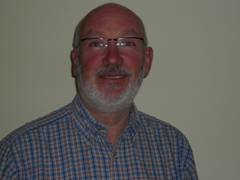You are here
- Home
- Conferences
- Conference 2008
- Spending time
Spending time
Paul and Sue Dumbleton
This presentation will examine the concept of leisure time for people with a learning difficulty.


Leisure time is usually understood in contrast to work time. Leisure time is free time, time which we choose how to spend - in contrast to work time over which we have less control.
People who have a learning difficulty can lack this contrast. They often have too much free time - though the quality of that time can be poor. Newly configured day services are often premised on leisure activities - and while these can offer greater choice than traditional day centre activities they blur the boundary between leisure time and work time. The leisure time of people who have a learning difficulty is often highly structured - there is little scope for simply being. For example, many teenagers and young adults do not have structured free time - they 'chill' with friends or 'hang out'. For teenagers and young people who have a learning difficulty this way of spending time is more problematic.
The social lives of disabled young people are generally impoverished compared with those of their non-disabled peers (Capability Scotland, 2003; Sharma and Dowling, 2004). But, despite official recognition of this (Scottish Executive, 2000) and legislation (The Children (Scotland) Act 1995, HMSO) designed to counter the effects of social isolation, difficulties persist. Leisure time, by its definition, is a private matter. It is not usually an area for social policy or for support - except where this is given in highly structured ways such as the provision of special clubs or sports associations. Supporting people to 'hang out' requires subtle and sophisticated intervention.
The presentation will examine the ways in which children and young people with learning difficulties spend their leisure time. It is based on the testimony of parents who established social clubs for their sons and daughters in the 1960s and with more contemporary approaches to 'spending time'. It will conclude with some examples from the voluntary sector of how this subtle support can be achieved.
References
- Capability Scotland (2003) Childhood Disability and Poverty, Edinburgh: Capability Scotland.
- Sharma, N. and Dowling, R. (2004) Postcards from Home: the experience of disabled children in the school holidays, Barkingside: Barnardos.
- Scottish Executive (2000) The same as you? A review of learning disability services, Edinburgh: HMSO.
Contact us
About the Group
If you woud like to get in touch with the Social History of Learning Disability (SHLD) Research Group, please contact:
Liz Tilley
Chair of the Social History of Learning Disability (SHLD) Research Group
School of Health, Wellbeing and Social Care
Faculty of Wellbeing, Education and Language Studies
The Open University
Walton Hall
Milton Keynes
MK7 6AA
About the website
If you have any feedback or would like to report a problem with the website, please contact WELS-Research-Admin@open.ac.uk.